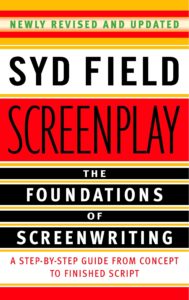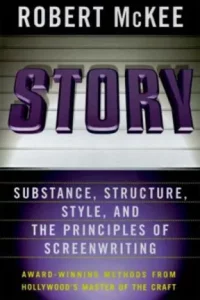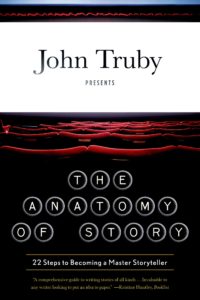
How do you get started screenwriting? Here are SEVEN STEPS to get you started….
1. GET THE DAMN SOFTWARE
There are all kinds of great software to get you started, some are free, and some will cost a little bit of cash, but you need the software to get the format right. Nothing says amateur like a screenplay written in Word.
Tip: before you subscribe and pay six bucks a month for the “special features” of some of the free software, just spend 45 bucks on Scrivener or shell out the full price for FINAL DRAFT.
Scrivener will cost you about fifty bucks and is better than most of the free software. All the subscription-based software will eventually cost you hundreds of dollars (six bucks a month times every year you write = a shit ton more money than Scrivener costs for the one time fee)
Full disclosure: I am not sponsored by Scrivener or Final Draft, so I gain nothing by promoting their product, I just use them both.
Here’s a link to Scrivener.
Here’s a link to buy FINAL DRAFT.
And if you want free, check out STUDIOBINDER’S free software
2. UNDERSTAND THE FORMAT
The format of a screenplay takes getting used to. It’s a blue-print for a movie, not really a work of art unto itself, and maybe a shock if you are used to reading novels.
One of the keys to understanding the format is it is to follow the principle that one page = one minute of screen time. The more you make the screenplay feel like it is a series of images unfolding in real-time (present tense) the easier it is to nail the format.
But the best way to grasp the format is…..
3. READ SCREENPLAYS
The best way to get used to the style and format is to read screenplays, the more recent the better, as the style is constantly changing. The great thing about this is most screenplays are available online to download for FREE.
Check out The Script Lab’s database and download your favorite screenplays. Here is a link where you’ll find screenplays, TV pilots and Series Bibles.
I’d recommend picking a script or two that is in the genre you are working in or is similar to your screenplay and keep the pdf open while you write so you can see how other writers handle specific tasks like writing action scenes, formatting dialogue, etc.
Pro tip: Avoid transcripts. They won’t teach you anything about the format.
4. LEARN THREE-ACT STRUCTURE
Even if you want to be the hipster screenwriter who pretends they don’t use story structure, you’re going to want to learn it, even if it is just so you can communicate with producers and directors about story structure.
You’ll need to know what a “break into act two” is, what an “inciting incident” is, or an “all is Lost” moment. Truth is, while there are films that break it, most—and I mean like 98 percent—of movies— use three-act structure, even ones written by hipster screenwriters that pretend to hate it. I learned this through studying over five-hundred screenplays teaching classes at Grub Street.
You can learn three-act structure by reading Syd Field’ Screenplay or one of the many imitators. But the best way to learn story structure is to watch or read a film you love and see if you can spot the plot points.
You can download an outline template to use while analyzing a film here:
Or you can watch one of my videos breaking down the story structure of several films and TV shows:
5. Find yourself a Guru
There are many different screenwriting gurus that have built careers giving advice to writers on all aspects of writing, and some of these gurus have amazing insights to share.
You may find you respond to one but not another, for example: I love John Yorke’s INTO THE WOODS but don’t so much love Save the Cat. They all hit the same ideas from a different angles, so you can figure out which style works for you.
The hipster screenwriter will tell you to avoid advice, but in my opinion that is a lame hipster take. Getting ideas from those who have studied the masters can’t hurt as long as you are not too rigid in how you follow them. You may feel you need to “Jeet Kune Do it” (That means pulls from all styles like Bruce Lee).
I would advise looking into, in order of how much I like them:
- Into the Woods by John Yorke

- Screenplay by Syd Field

- Story by Robert McKee

- Wired for Story by Lisa Kron

- The Screenwriter’s Bible by David Trottier

- Anatomy of Story by John Truby

- Save the Cat by Blake Snyder

But you can’t go wrong with any of these books. I pick up something new everytime I read any one of them.
6. Pick a lane…
Screenwriters are hired based on the style of screenplay they write, so it is best if you can easily be identified with a certain genre or style— for example, if you want wacky takes on existing IP, you’d hire Lorde and Miller. If you want a dark superhero flick, you’d hire David S. Goyer. If you want splatter horror torture porn you’d hire Eli Roth.
You would not hire Lorde and Miller or Goyer or Eli Roth to write a biography of Winston Churchill.
You should pick the genre you want to work in—whether it is horror or comedy or period pieces — pick something and write a few spec scripts in that genre. It is okay to work in genres that have overlap—thriller and horror go well together as do Sci-fi and action, but you don’t want to be all over the place, it would make producers have a hard time matching you with a project.
7. PICK A GOAL
Nobody reads screenplays other than screenwriters and superfans, so writing a screenplay that doesn’t get made is about as useless as self-publishing your grocery list.
You need to find a way to get your script out there some way, whether you make it yourself (like my partner did, check out our movie THE KILLERS NEXT DOOR here) or you submit to contests or fellowships or submit to a manager or production company.
The contests and fellowships can be a great way to break into the industry. Sometimes even just placing in a contest can get your script in front of a manager or producer. Not all contests are created equal, the way you can tell if a contest is any good is to check out who the judges are. If the judges are managers or producers or studio execs, then the contest might be worth it. There is a list of the best screenplay contests that will guide you on which ones are truly worth it, but I’ll swear by the Austin Film Festival.
The WGA keeps a list of all the best fellowships and contests. Many of these fellowships are designed to give voice to underrepresented groups, so check out the list and see if one of these fits your needs.
Writer’s Guild list of fellowships and contests.
Either way, you need to set a goal and work toward it.
BONUS: CHECK OUT YOUTUBE….
There’s tons of great information on screenwriting on Youtube. I recommend Lessons From The Screenplay or if you are looking for advice on the career of a screenwriter, check out Scriptfella. Or (Shameless plug) check out my channel Catharsis Machine.
